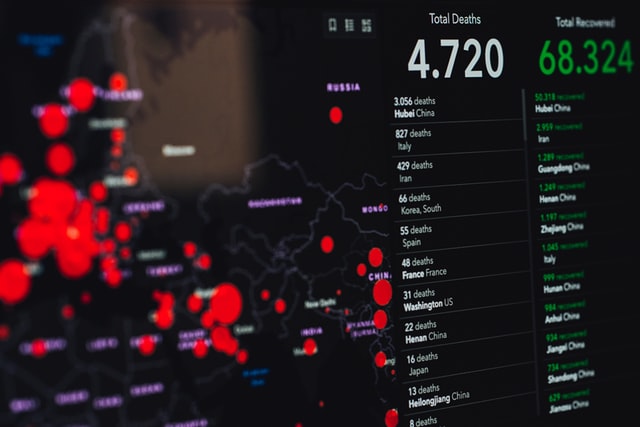Your PhD journey: From Proposal to Viva
Ibrahim Sirkeci
Professor of Transnational Studies and Marketing at Regents’ University London, UK (sirkecii@regents.ac.uk) @isirkeci
PhD is the most common abbreviation used to refer to doctoral level degrees. However, depending on subject area and institutions, varying titles such as DBA for Doctorate in Business Administration or EdD for Doctorate in Education are in use.
The first thing to bear in mind is that doing a PhD is mostly a lengthy effort in solitude. In a typical British PhD, you will find yourself among a cohort of other PhD students. You will probably meet them in training programmes early on and see them occasionally at semi-compulsory research seminars. Rest of the time, you may end up looking at your wall and thinking about it on your own and meet your supervisors periodically – often once a month. Although there are various structures to ensure you are on a healthy path and making progress and all is going by the book, these efforts may not be too visible to you as a PhD student.

Yet, you are not alone. In 2016-2017, 12,550 UK nationals, 3,445 EU nationals, and 7,645 students from outside the EU have obtained British research-based doctorate degrees. This shows a small decline over 2014 when there were 25,000 doctorates graduating in the country. Globally there has been significant growth in PhD numbers, particularly in emerging markets in the last decade. Here we focus on PhDs and not professional doctorates which are a totally different breed.
A typical PhD takes about 3 to 4 years on a full-time basis and 6 to 8 years part-time. The better organised and determined you are at the beginning of this journey, the easier to tackle the challenges you face on the way. Of course, there are many “mundane” challenges such as housing, finances, immigration regulations if you are overseas, cultural differences, and so on. Nevertheless, in this essay, our focus is on the earlier steps and how to get into a good PhD programme in the UK.
Applying for a PhD and the Proposal
Applying for a PhD is similar to any other programmes to an extent that you have to provide evidence of your earlier degree(s), language qualification if studied in another language, to be eligible. Given the high level of a doctoral degree, all requirements are higher than the requirements for lower level degrees such as undergraduate. For example, in most institutions, you need to have a score of 7 or higher in IELTS.
When searching for undergraduate or masters level programmes, we always spend time looking at the institutions, people working there, academics we are going to face in classes. However, often an overall positive feeling of the institution would suffice to make our minds. We can just pick a subject and sign up for it. PhDs are drastically different. You still do the same searches about the quality of an institution and look into other logistic issues. More importantly, though you have to find your best “match” within the expertise pool offered by the institution. For example at Regent’s University London, Faculty of Business and Management, supervision we offer focuses on five areas with subfields: Strategy, Marketing, Finance and Banking, Transnational Studies, and Entrepreneurship. As also commonly seen other universities, these are somewhat linked to the research centres in Transnational Business and Management and Entrepreneurship and Family Business.
Many universities try to help prospective PhD students to locate their potential supervisors. It is often advised that candidates to refer to a list of staff who supervise research degrees where fields of expertise for supervisors are listed. Naturally, these lists are not exhaustive and the process of deciding a PhD topic is subject to negotiation and compromises. Sometimes, you may find the best expertise on a topic but methodological requirements may warrant another expert to join the team of supervision. Therefore as a PhD candidate, you should consider this as the beginning of an open-ended negotiation. In the end, you may also decide to go elsewhere if there is not good enough fit. Similarly, the institution may decide not to take you on board because they may not have the appropriate expertise or capacity to supervise you.
From Topics to Proposal
Once you decided on what to study and what would be your “big” research question and when you identified a potential PhD supervisor(s) in the institution you are targeting, the next step is to get in touch with the PhD programme director and potential supervisor(s) for a green light to press ahead with an application. This is the stage when you will need a good PhD proposal.
Ideally, a PhD proposal can be about 1,000 to 1,500 words. It needs to address key issues by providing good enough details but not too long. Nevertheless, because PhDs are in a way “customised” study programmes, we cannot be prescriptive about this. For instance, Regent’s offer this brief guidance document for writing proposals.
Your research proposal is your marketing pitch to the funders and supervisors. It has to be appealing, getting your passionate interest across, accurate, articulate, well-structured, informed of the current state of the art in the field you want to do your research while also being flexible enough to allow room for changes at later stages.
To capture the attention of the audience, a concise and indicative title and the opening paragraph are needed. Alongside an interesting research question posed at the beginning, you can throw in some personal details illustrating how and why you are passionate about the subject. Dry information about your background can go into your CV accompanying the application.
Objectives and research question needs to be elaborated and justified. You have to show how your research fills a gap in existing knowledge and the significance and relevance of searching answers to the question posed in the wider context. You have to think about a good answer to the “so what?” question. Nevertheless, that does not mean you have to propose very wide and global questions. The more nuanced the question, the more relevant and accurate the outcomes. A narrower question which can be dealt with in a limited time with very limited resources available to you is your best bet.
It is not a completed dissertation, therefore, nobody expects a full literature review but a good candidate should be able to show that she is up to date with the literature, aware of main debates and authors as well as key theoretical debates. It is important to carefully reference all resources you refer to here.
The next important section is data and methods. These are likely to change in due course as you fine tune the research question(s) and research design but the panels would like to see a well-developed methodology offering appropriate techniques for data collection, sampling issues, analysis as well as limitations of the proposed research design.
It is always better if you can include a viable tentative timetable where certain tasks, milestones and deliverables are clearly identified.
Bibliography or list of references is a must and better impression you make if it is formatted coherently following some of the mainstream referencing styles such as APA.
As I began this section saying that a proposal is your marketing pitch, therefore the style and format are important. Although it is a short piece, use some clear headings/subheadings and pages are numbered. It should be free of language errors.
Application Process
Once the proposal is ready, the next stage will be to submit a formal written application. Usually, an application form will be filled and emailed to an admission team. You have to note down the application deadlines. At Regent’s, we have cut off dates as 1 November for students wishing to start in March the following year or 1 July for students wishing to start in October of the same year.
You will also typically need to provide supporting documents such as copies of your university-level academic transcripts and certificates, a short (300 – 500 words) personal statement outlining the reasons for applying, two references, and identity and visa documents, and the very important research proposal.
In the past, on paper applications would suffice for a decision to offer a place in PhD programmes. However, nowadays it is increasingly common that if your application is considered to be of certain quality you will be invited for an interview either in person or via the internet.
Finances for a PhD
Tuition fees for PhDs are not much different to other degree programmes, and in fact often slightly lower. Depending on where you will be located, it is important to consider your finances for medium-term (e.g. covering the period of PhD). Studying for a PhD takes substantial time and commitment, therefore, I would recommend full-time study, however, you may consider part-time options (if you are eligible) to balance your finances for the period. Part-time PhDs usually run much longer and drop out rates are relatively higher than full-time PhDs.
Doing Your PhD
As mentioned above, it is a solo affair and you need to be in charge of your own time. Rule of thumb is to keep focused all the way but try to exploit every opportunity to develop yourself as an expert who will rejoin the “real life” either as an academic or academically qualified high level professional. When I did my PhD at the University of Sheffield, I remember after each successful viva, we would hear the sigh and say “disease is over”. So you will recover no matter what. It is best when you recover you should not feel any regret that you missed this or that.
Those “wonderfully selected” research seminars not even with the slightest connection to your topic of research may come handy years later when you face new research questions and challenges. These are important to broaden your research knowledge and perspective. At the end of the day, you are training as a knowledge-producing expert for whom methods, methodologies, and data are bread and butter. Everything else can be pretty much found on “the internet”. Long story short, try to attend them. Also remember, these are pretty much the only opportunities for you to feel that you are at school again. Eventually, not only you may need but you may also like that “odd guy doing research on dunes in Sub Saharan Africa”.
When you write your dissertation, it is advisable to make a workable plan with your supervisory team. This should clarify issues such as the frequency of meetings, feedback sessions, whether large or small chunks of work to be reviewed and commented on. To monitor the progress and achieve your goals, keep a written record of these sessions.
“Stay focused” is the most common advice you would hear. However attractive offers may come to your way, until you see the viva invitation, try to stay away from additional work not related to the core of your PhD research.
Your relationship with your supervisor
Most successful PhDs happen to be the result of a good student-supervisor relationship. In this process, issues arise over unavailability of supervisors, or mismatch of areas of interests, or other administrative issues resulting in lack of supervisory contact. It is always the student who should keep an eye and demand the required support as within a one-to-one setting, things may slip.
Supervisors are often very busy and experienced academics with a lot of pressure on their time. There can be conflicts between your supervisors or scholarly or practical issues as there can be conflicts between students and the supervisor(s). In such situations, it is important to stay calm and impartial and seek advice from the administrative bodies and committees in place. Again stay focus on your course to a successful PhD.
Even if you work on a joint project, your PhD is your project and it is your responsibility to keep it that way. Guidance and support are all you need. However, it is always good to work together with your supervisors and focus on output. In such occasions, make sure everybody’s contribution is appropriately recognised and acknowledged.
Although it is not advised, in certain circumstances such as irreconcilable differences and conflicts within the supervisory team, institutions’ inability to fix the problem(s) may force you to leave the institution and move on. However, it is in your best interest to seek a solution without making a drastic decision.
At the End
You will be surprised, after all the challenges and frustrations on the way, the viva time will arrive quickly. Once you reach the stage that you feel you need a mock viva to get ready for the “real thing”, make sure you have kept all the records of what you have done so far. Since you may always face the ultimate big blow and the examining panel may require you to revise and rewrite and even redo the analysis or collect further data. It can get perhaps slightly worse than that but we need not to focus on that here.
When you enter the room for your viva, try to be calm and confident. Despite all the big egos which can be visible from a mile, the panel of examiners are not the expert on your PhD but you are. This does not mean that you blast them and scream. PhD exam is where you establish bridges not burn them. The panels often are very helpful and interested in seeing you progress further. They give advice on how to publish, how to get a job and you may take it or not even some practical personal advice may come your way. Just smile, respect and move on. Even if you feel strongly about certain things and disagree with certain criticisms raised by the panel, it is not the time and place to fight and create havoc. Remain composed and take on board the criticisms and stay focused. You are there to achieve and go through the last hurdle in this process.
This short essay is written with all good intentions and naturally limited to my experiences and slightly biased towards the procedures in place in institutions I do supervise and examine PhDs. Therefore, whatever I say in this honest account of what it involves should be treated with that in mind. Otherwise, hopefully, this will help you in your PhD journey.
Good luck!




